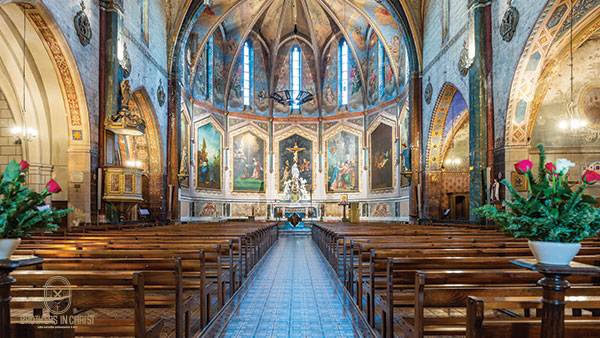
What is Catholicism
Catholicism is one of the three major branches of Christianity, alongside Eastern Orthodoxy and Protestantism. It is the largest Christian denomination, with approximately 1.3 billion adherents worldwide as of 2024. The Catholic Church, led by the Pope as the Bishop of Rome, traces its origins to Jesus Christ and the Apostles.
Core Beliefs
Catholics believe in:
- One God in three persons: the Father, Son, and Holy Spirit
- Jesus Christ as the divine Son of God
- The Virgin Mary as the Mother of God
- The infallibility of the Pope in matters of faith and morals
- The seven sacraments: Baptism, Confirmation, Eucharist, Penance, Anointing of the Sick, Holy Orders, and Matrimony
Distinctive Features
Sacraments: Catholics place great importance on the sacraments, particularly the Eucharist, which they believe becomes the actual body and blood of Christ through transubstantiation.
Hierarchy: The Church has a hierarchical structure, with the Pope at the top, followed by bishops, priests, and deacons.
Tradition: Catholic doctrine is based on both Scripture and Sacred Tradition, as interpreted by the Church's Magisterium.
Social Teaching: The Church emphasizes social justice, operating numerous schools, hospitals, and charitable organizations worldwide.
Worship and Practices
Catholic worship is centered around the Mass, which includes liturgical readings, prayers, and the Eucharist. Other important practices include:
- Regular confession to a priest
- Devotion to the Virgin Mary and the saints
- Observance of holy days and liturgical seasons
Catholicism has profoundly influenced Western culture, philosophy, art, and science throughout history. Today, it continues to be a significant force in global Christianity.

